Technological advancement is unstoppable and faster than ever before. Sitra’s Megatrends 2016 report argues that the understanding of technological development and its impacts on society, work, economy, and people has become essential for all of us.
The emergence of new exponential technologies affects everyone and changes our society. Examples of such technologies are virtual and augmented reality, biotech and nanotech, 3D printing, blockchain, artificial intelligence, and machine learning. At a first glance, we easily connect these technologies to Sci-Fi movies. Have you ever imagined the robots taking over the planet? Or the guy next door turning into a biohacked green monster?
The reality is a bit less theatrical. Exponential technologies provide great new possibilities for consumers to contribute to sustainable development and well-being, especially in housing, mobility, and eating. Digitalisation and freely available information are in a key role in creating completely new possibilities for us to be part of the development.
We need to empower the whole society to aim towards sustainable development and technology plays a key part in it.
Let’s take a look at some current trends induced and enabled through new technologies and the way they can empower all of us to make a change:
1. Prosumers of distributed, renewable energy
Development of home automation and data digitalisation have enabled consumers to become prosumers whose households not only consume energy but also produce it. Digital platforms are the enablers for consumer engagement in the energy sector.
2. Demand response services
Smart control logics enable consumers to change their households’ energy consumption behavior to better match the demand with energy supply. The market potential of smart grids in total is huge, close to $80 billion by 2020 (The Finnish Climate Change Panel, 2016). In CITYOPT project funded by the EU, gamification was used to motivate households to utilise demand response services. Households earned points when they used electricity during the off-peaks rather than during the peak hours. The electric power companies donated money for local charities in accordance to the earned power points.
3. Blockchain
The development of big data and cloud services have rapidly advanced blockchain in the banking and financial markets. The most well-known example of a blockchain application is Bitcoin. However, blockchain can also be a game changer in many other sectors, such as the energy sector. For example, Siemens has piloted together with LO3 Energy a blockchain microgrid (Brooklyn Microgrid) which enables the stakeholders to trade locally produced energy.
4. Mobility as a Service (MaaS)
The main goal of MaaS is to make private motoring needless by revolutionising transportation of people and logistics of commodities. For example, Kalasatama district in Helsinki is a pilot area for living without your own car, and PiggyBaggy and K-group have successfully tested ride-sharing of groceries.
5. Collaborative economy
Advancements in digital platforms boost the use of under-utilised resources. Collaborative economy has expanded to the areas of accommodation and facilities (Airbnb), peer-to-peer transportation and car sharing (Uber, OP Kulku), household services and tools (Kauppahalli24, Liiteri), professional services (WeTaskit, Me2We), and collaborative finance (Joukon Voima). The total value of collaborative economy purchases is expected to grow over tenfold in Finland by 2020 from today, exceeding €1.3 billion (Ministry of Economic Affairs and Employment, 2017).
6. Food economy
Megatrends in the food industry include digitalisation and consumer-centric needs which are comprehensively covered in VTT’s roadmap Food Economy 4.0. Technological innovations in food economy include for example enhanced tracking and monitoring technologies, which provide more information of food production and one’s well-being for customers and, therefore, help them to make more sustainable and healthy decisions. In addition, food spoilage prevention has become a rising business. ResQ is one of the digital service platforms that aims to minimise the amount of food waste in restaurants by allowing everyone to rescue extra food.
The power of consumers in the transition towards more sustainable living and well-being should not be underestimated. The consumers’ decisions guide the actions of the companies. Technical development especially in the field of digital services is the key to unlock our power to make a change. A good way to get started innovating is to flex your brain with Sitra’s Megatrend cards (in Finnish). Let’s “shape the system to the people, not the people to the system”, as Deanne MacDonald (BLOCK) has said.








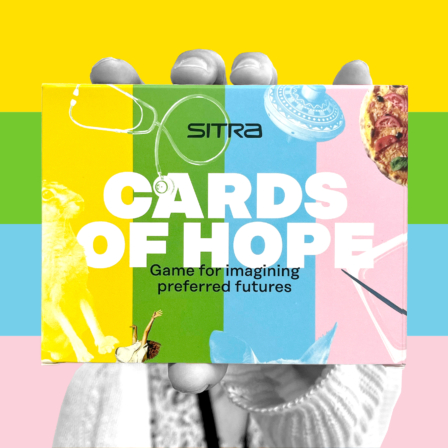
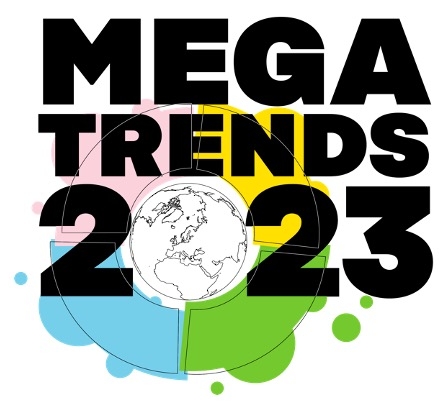
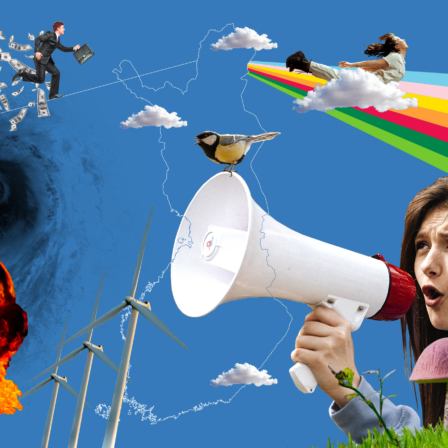
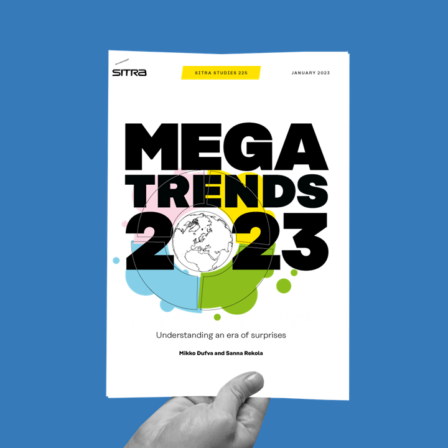


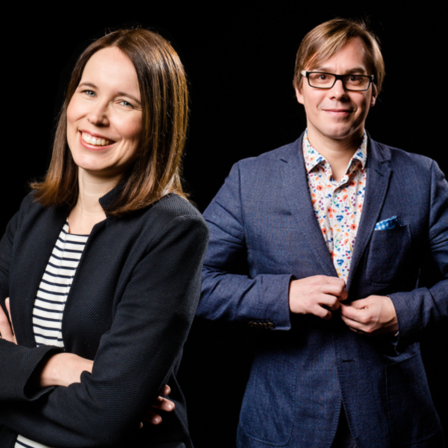
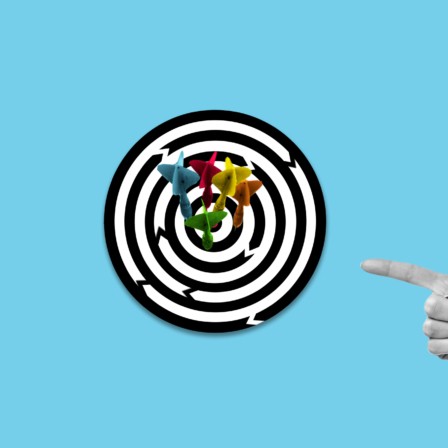
Recommended
Have some more.